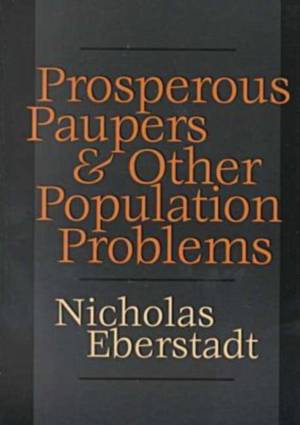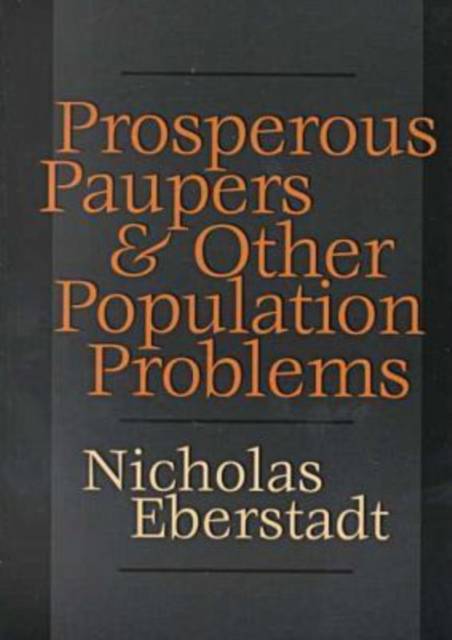
- Retrait gratuit dans votre magasin Club
- 7.000.000 titres dans notre catalogue
- Payer en toute sécurité
- Toujours un magasin près de chez vous
- Retrait gratuit dans votre magasin Club
- 7.000.0000 titres dans notre catalogue
- Payer en toute sécurité
- Toujours un magasin près de chez vous
Description
In current intellectual and public discourse, the entire modern world-from the affluent United States to the poorest low-income regions-is beset today by a broad and alarming array of "population problems." Around the globe, leading scientists, academics, and political figures attribute poverty, hunger, social tension, and even political conflict to contemporary demographic trends. These authorities assert that the size, composition, and growth rate of population routinely pose direct and major threats to human well-being. They argue for interventions aimed specifically at altering society's demographic rhythms. In this wide-ranging and carefully reasoned book, renowned demographer and social scientist Nicholas Eberstadt challenges these ideas and exposes their glaring intellectual -shortcomings.Eberstadt makes the case that the very conception of "population problems" is inherently ambiguous and arbitrary, lending itself to faulty analysis and inappropriate diagnoses. Careless thinking about population is typically a result of inattention to, or indifference toward, the fundamental unit in all populations: the individual human being. In our time, Eberstadt writes, problems attributed to demographic trends are actually rooted in political and ethical situations. The brave new world of economic reform, far from bringing about the good society, serves only to postpone that society by a cavalier disregard of social and culture factors in human evolution. Eberstadt warns against a melodramatic approach to issues such as hunger and malnutrition. Material advances in the economy and cultural advances in the polity are safeguards against the worst outcomes of current problems in population. His reversal of cause and effect marks this as a volume apart, provocative, controversial, but surefooted in its scholarly sensibility and methods. In an academic world in which demographers are now speaking of the peaking of population rather than its infinite expansion, Eberstadt moves the discussion to family ties and common bonds. Demographers and family planners alike have much to learn from an approach that takes seriously the pitfalls as well as blessings of so-called zero-growth in the world -population.
Spécifications
Parties prenantes
- Auteur(s) :
- Editeur:
Contenu
- Nombre de pages :
- 282
- Langue:
- Anglais
Caractéristiques
- EAN:
- 9781560004233
- Date de parution :
- 31-07-00
- Format:
- Livre relié
- Format numérique:
- Genaaid
- Dimensions :
- 152 mm x 229 mm
- Poids :
- 679 g

Les avis
Nous publions uniquement les avis qui respectent les conditions requises. Consultez nos conditions pour les avis.






